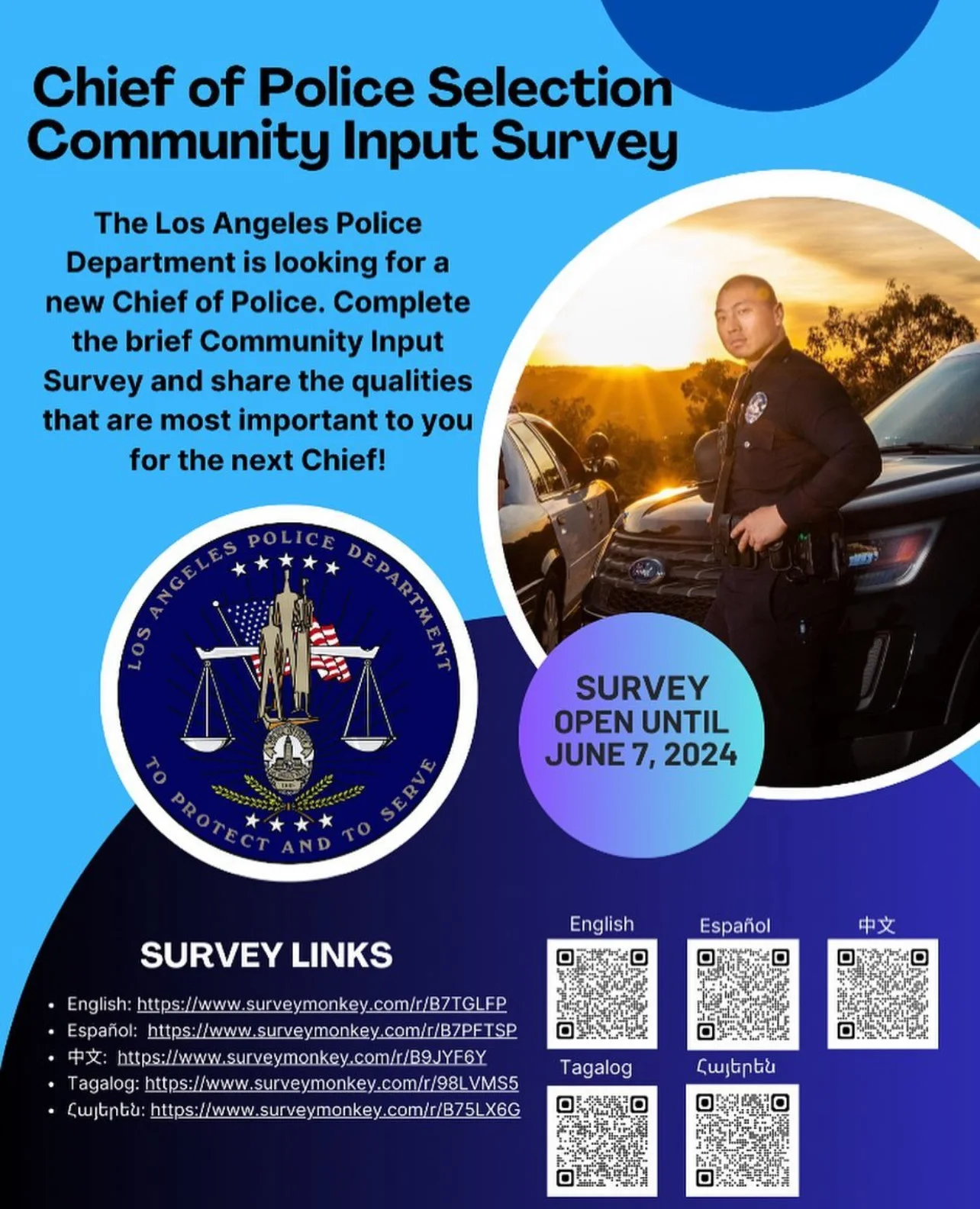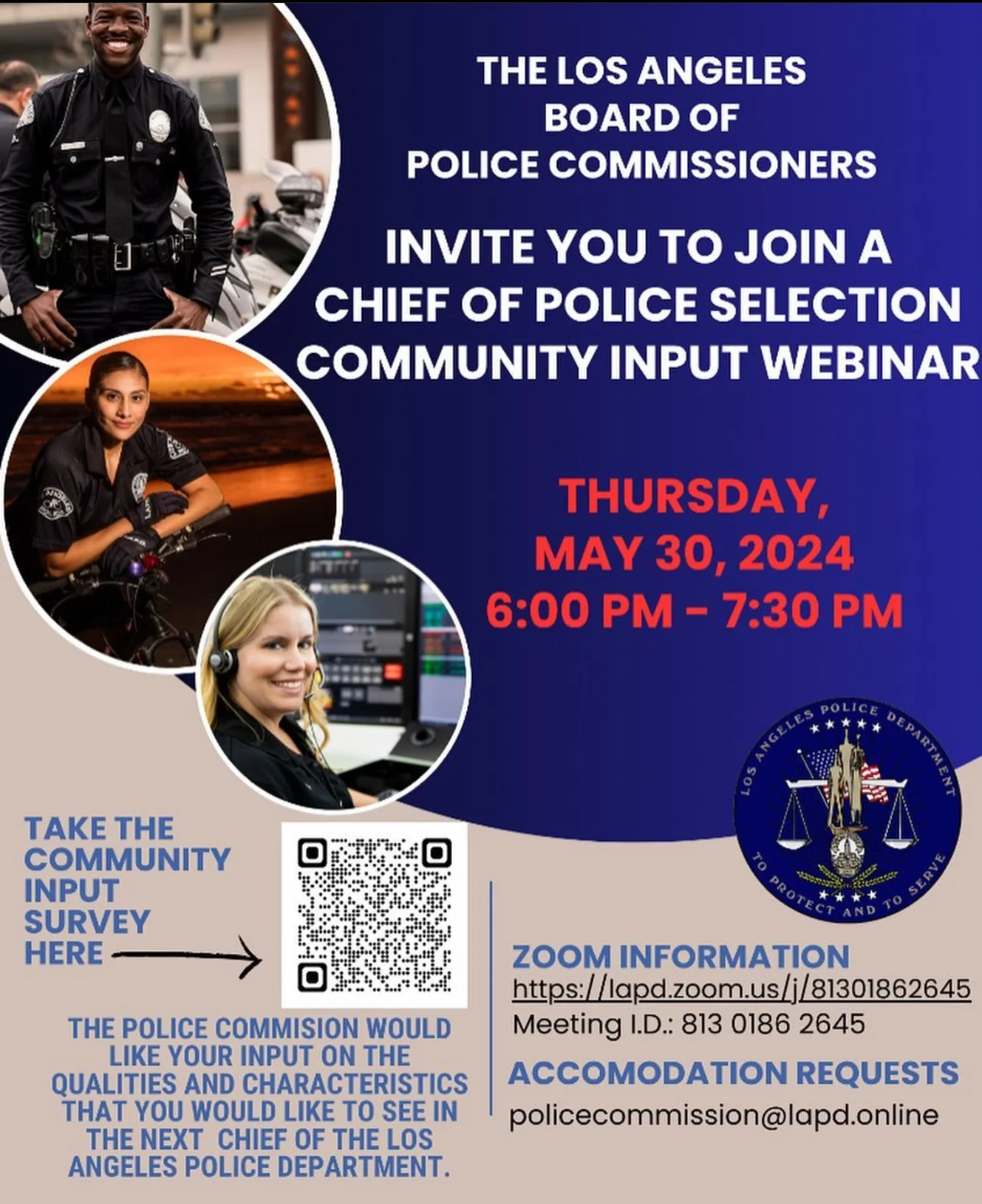
Los Angeles Police Chief Michel Moore is retiring at the end of February, which means L.A. is on the hunt for a new leader in one of its most challenging jobs. Turnover in the police chief role happens every five to 10 years. Here’s your refresher on what the chief does, how the selection process will […]


Los Angeles Police Chief Michel Moore is retiring at the end of February, which means L.A. is on the hunt for a new leader in one of its most challenging jobs.
Turnover in the police chief role happens every five to 10 years. Here’s your refresher on what the chief does, how the selection process will work, and how you can make your voice heard.
Think of the police chief as the CEO of a company or a university chancellor. They’re responsible for directing the police department — currently with 8,975 sworn officers and 2,810 civilian staff — in a way that fosters public trust and reduces crime.
While it’s a role mandated by the city charter, the public doesn’t get to elect the police head — instead the mayor chooses someone for the position.
The charter outlines the general duties of a chief, which includes:
There are other parts of the role that aren’t as spelled out.
“Really their job is to be a big picture thinker,” said Emily Owens, a professor of criminology and economics at UC Irvine. “They need to be able to figure out what the LAPD needs to do to move forward in a way that makes the people of Los Angeles feel safe.”
They’re also responsible for setting the agenda and tone of the department, “but that’s going to get filtered down through many, many, many layers of administration,” Owens said.
That’s a reality in any department, but the LAPD has some uniqueness with its community safety partnership bureau, which is aimed at improving relations between law enforcement and residents. Owens says getting the vision right for this will be a key part of the new chief’s job.
“And what it means to really protect the constitutional rights of the community that you’re serving,” she added. “You know, to be safe from crime, but also not feel like the police are actually after you.”
One way that police chiefs try to achieve this is by talking with other police leaders. While chiefs are mainly chosen based on policing experience, no one person will have the know-how to handle every crisis. A key part of leading is learning strategies from other chiefs around the nation.
Right now, the police commission is looking to select an interim replacement for Moore, but the process for a permanent replacement is different and could take months. Here are the four steps under the charter:
Bass’ office told LAist that they will be seeking community input to get a sense of what the public is looking for.
“Angelenos can absolutely expect community listening sessions and meetings in the coming months to discuss what they’d like to see in the next chief,” press secretary De’Marcus Finnell said. “She is also already engaging with active members of LAPD to talk about what they would like to see in their next chief as well.”
It’s unclear where those meetings will take place, but the mayor’s office will likely share when they’re set up.
In the past, mayors have released the list of finalists before choosing, but that’s not always the case. When former mayor Eric Garcetti appointed Moore as chief, he didn’t initially share the list of finalists. The L.A. Times released the names based on their own reporting. LAist asked Bass’ office if she would commit to making the shortlist of recommended candidates public but did not get an answer.
The mayor appoints the police commissioners, so it’s likely that her desires will inform the process early on.
And don’t be surprised if Bass’ appointee turns out to be from inside the LAPD. Most chiefs have been career officers in the department.
The new chief will take on a growing list of issues facing the department. The city has the 2028 Olympics coming, which will put a lot of strain on services, but deeper concerns remain.
Among them, a rank of sworn officers that has been shrinking for years. Currently just under 9,000, Bass wants to expand it to 9,500. The new leader will likely have to do a staff assessment on building morale internally — something that the police union wants to see improve — and trust with the public.
The LAPD is dealing with internal issues, such as a detective’s allegations that Moore ordered an investigation into Bass, which he’s denied, and fallout from a subordinate’s accusation that an assistant chief stalked her.
For Owens, how the chief will set the tone for working with the public, especially with calls involving people experiencing homelessness, could be a major opportunity to rebuild that trust.
“Police officers are the manifestation of the state’s authority over us,” Owens said, “and the police chief needs to make sure that authority, that granting of privileges is deserved and earned.”
Read this article at https://laist.com/news/criminal-justice/los-angeles-lapd-chief-search-bass-moore-public-input-community-feedback-charter-explainer